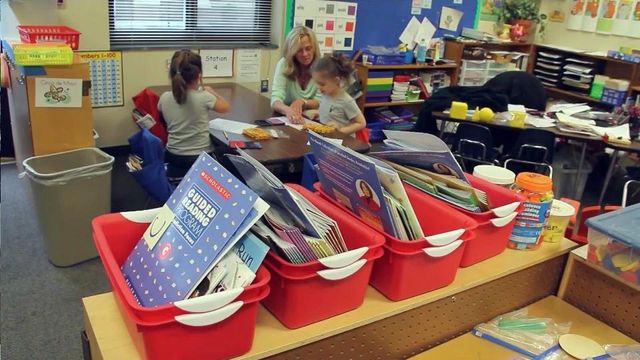GOP maps major expansion of NC school voucher program
The number of students in North Carolina receiving vouchers to help pay tuition at private or religious schools could see a six-fold increase over the next 12 years.
Posted — UpdatedRepublican lawmakers included a provision in the state budget that would add more than 2,000 slots to the Opportunity Scholarship program every year for a decade, pushing it from about 6,000 students this year to about 36,000 by 2028. The cost for the voucher program would grow from $25 million to $145 million during that period, according to the budget provision.
"That's enough to give every teacher in this state another 2 percent raise," said Rep. Duane Hall, D-Wake, a longtime opponent of the voucher program.
Future legislators cannot be required to fund the program at the levels set in the budget, Hall said, but the state should be spending that money on its public schools anyway.
"We still, to this day, spend less on textbooks than we did pre-recession. We still have (fewer) teaching assistants than we did before the recession," he said.
The General Assembly started the Opportunity Scholarship program in 2013 with $10 million, offering up to $4,200 in taxpayer funds to low-income families who want to send their children to a non-public school. The program was tied up in legal battles until the North Carolina Supreme Court ruled last year that vouchers are constitutional.
"This is coming out on behalf of parents and families who are taxpayers, who pay into the system in order for their children to get a good, adequate education," said Darrell Allison, president of Parents for Educational Freedom in North Carolina. "It’s political fodder here in Raleigh, but in backwoods North Carolina – in the mountains or the eastern part of the state – this is a real opportunity for families to once and for all be able be able to have an equalizer."
Hall says his biggest issue with the voucher program is a lack of accountability. The private schools that receive them aren't subject to the same testing requirements as public schools, so the state can't actually tell if the students using the vouchers are any better off than they would be in public school.
"The majority of voucher requests are for kindergarten and first grade. Those students obviously cannot say that the public schools have failed them," he said. "We’re siphoning money off our public schools when we don’t need to."
Allison said parents are the best judge of whether their children are better off in a non-public school.
"We're not saying that this is the end all, be all, that this is a silver bullet. What we're saying is that a 40 percent success rate for low-income kids in our traditional public schools is not good enough," he said.
The state has a waiting list of voucher applicants, he said, noting there's plenty of demand for alternatives to public schools.
Gov. Pat McCrory hasn't yet signed the budget, although he is expected to do so next week.
Related Topics
• Credits
Copyright 2024 by Capitol Broadcasting Company. All rights reserved. This material may not be published, broadcast, rewritten or redistributed.






